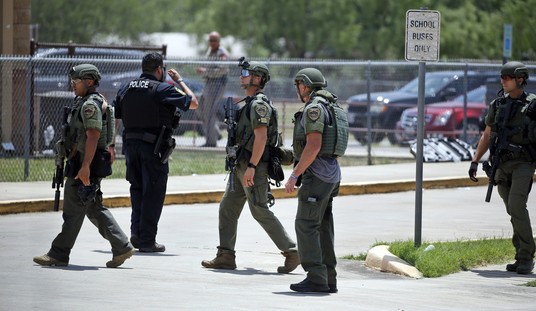The Washington Post reports that a bipartisan compromise could come out of Congress within a week approving the badly-needed FISA reform legislation. The main sticking point of telecom immunity would wind up in US district courts, instead of the FISA court as the White House suggested, but would allow telecoms to argue that the written assurances they received give them immunity from lawsuits. The ACLU remains unimpressed, but with most of the orders under which the NSA conducts its surveillance on international traffic expiring in August, Congress has almost run out of time:
A bipartisan group of congressional negotiators neared a deal yesterday on controversial wiretapping legislation that could be unveiled as early as next week, according to Capitol Hill sources and civil liberties advocates monitoring the talks.
Lawmakers have been wrangling for months over how to extend warrantless surveillance that Bush administration officials consider central to national security. Agreement has proved elusive because of privacy concerns as well as questions about telecommunications companies seeking immunity from lawsuits over their role in helping the government monitor phone calls and e-mail after the Sept. 11, 2001, attacks. …
A key element of the new plan would give U.S. district courts the chance to evaluate whether telecommunications companies deserve retroactive protection from lawsuits. A previous proposal floated by Republicans would have put the question to the secret FISA court that approves warrants.
Discussions extended late into the afternoon yesterday as aides for Sens. Christopher S. Bond (R-Mo.) and John D. Rockefeller IV (D-W.Va.) hammered out details with staff members for House Minority Whip Roy Blunt (R-Mo.) and House Majority Leader Steny H. Hoyer (D-Md.). Details in the current proposal continue to evolve, and await vetting by House and Senate leaders, according to congressional sources who spoke on the condition of anonymity because the process is not yet complete.
Telephone and Internet service providers say they received written assurances that the warrantless wiretapping program was legal at the time they agreed to participate. The American Civil Liberties Union and other advocacy groups, however, said the telecoms should be held to a higher legal standard for helping the government eavesdrop on their customers.
The Saturday reporting on this story seems rather remarkable. This has been a hot controversy during this Congressional session, with party leaders on both sides issuing stern warnings of disaster while both sides in the House played chicken with a previous bipartisan Senate compromise. The Saturday release may indicate that the Democrats want to de-escalate this issue as they have to get this resolved before NSA goes completely dark on international surveillance through American phone switches.
The switch from the secret FISA court to the public court might convince Democrats to support the reform legislation, but that only works as long as the immunity issue remains focused on the transaction between the telecoms and the Department of Justice on the legality of the operation. If the court starts getting interested in the techniques and information that the program used and produced, the government will have to cut the telecoms loose. That will impact the cooperation that the telecoms provide in the future, as they will not rush to put themselves at huge financial risk in the future to assist in national-security issues.
The ACLU’s response notwithstanding, it looks like the White House has gone a long way to attempt to get this issue resolved. Congress needs to act soon to ensure that the NSA has all the tools it needs and the flexibility it requires to nimbly follow terrorist communications. We can only stop the attacks if we discover them in advance.








Join the conversation as a VIP Member